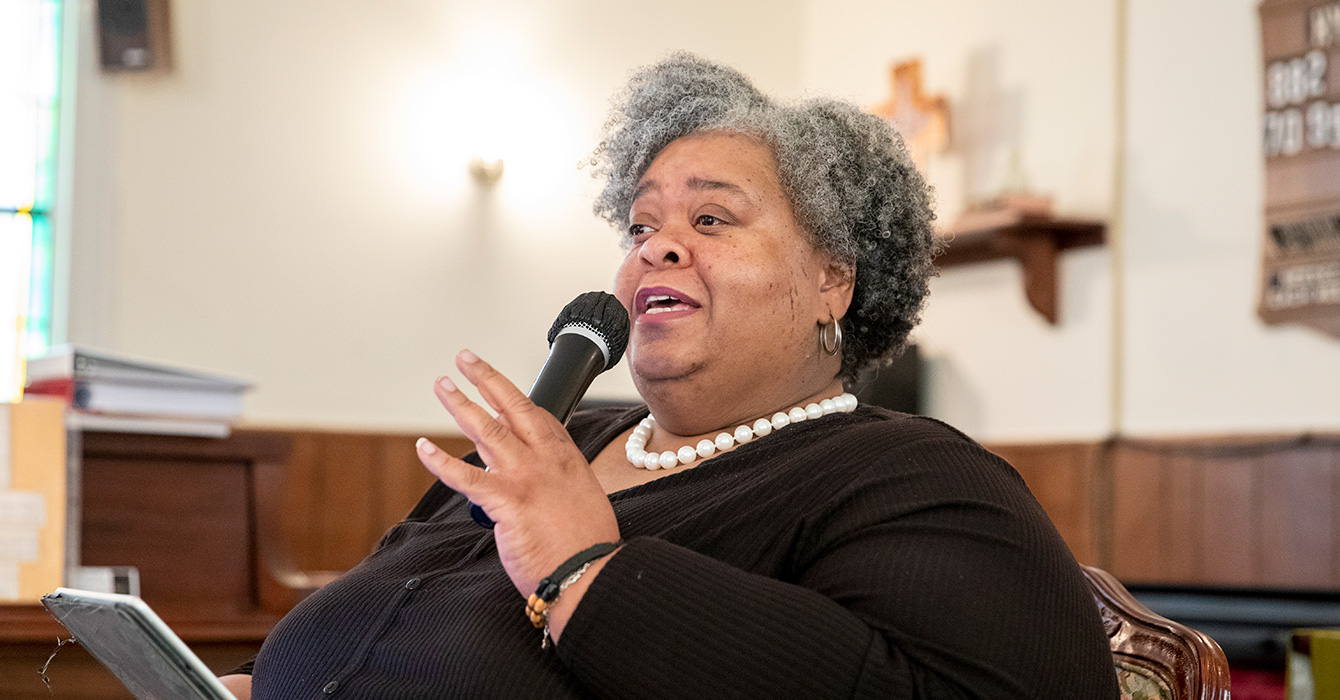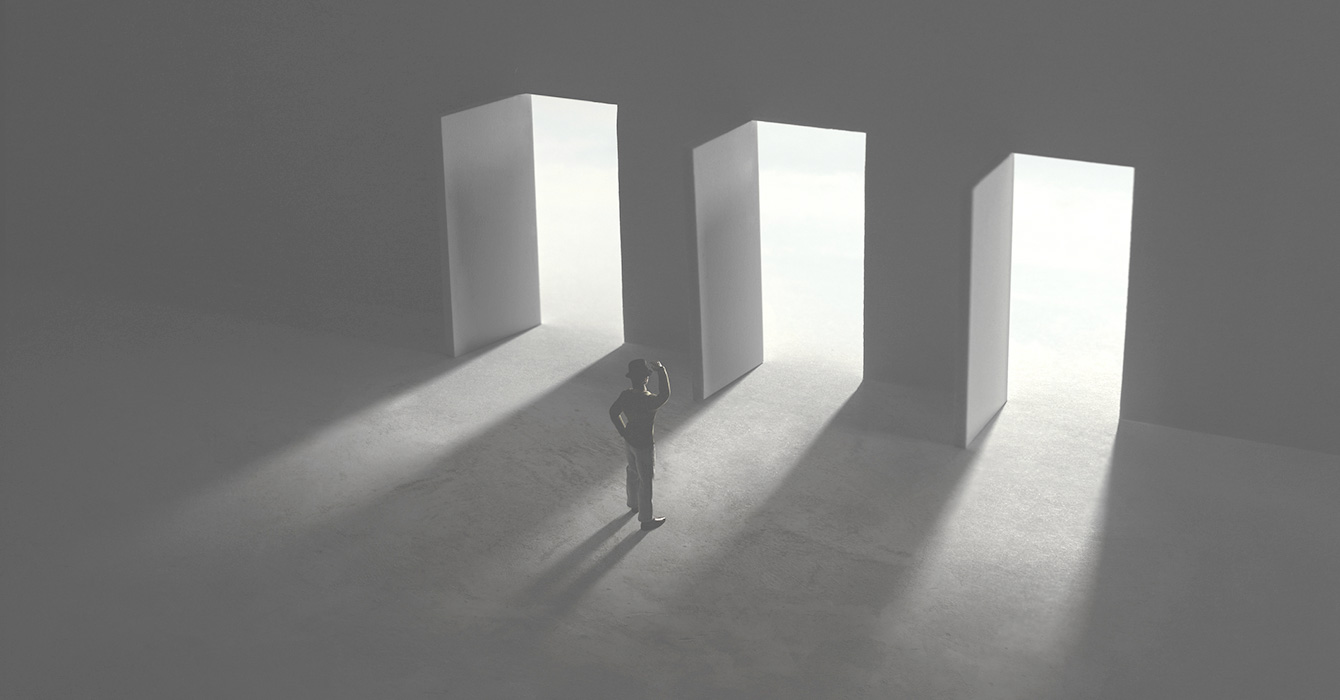It was sometime toward the end of my first year of divinity school when a professor hit me with the question I had been anticipating since the day I arrived: “How can you claim to be a Christian and at the same time willingly be a part of an organization that breaks things on purpose?”
Others had skirted around the issue before, but my professor was the first to ask the question outright. Despite being put on the spot in front of a roomful of my classmates, I was grateful for the opportunity to answer.
Basically, I explained, soldiers too need pastors. Their job is not one for the faint of heart. From the first days of basic training to their initial assignments to the combat zones where many eventually serve, soldiers experience challenges and even trauma that few in the civilian world will ever know.
Even as a first-year divinity student, I already knew from my undergraduate experience in ROTC that many in the military come from backgrounds on the margins of middle-class American life. Often, they enlist because they see the military as their best, if not only, means to get access to education or to break free from generations of poverty.
To 18-year-olds looking for any chance to get at least a little ahead, a four-year commitment seems harmless. They don’t realize how life can be forever altered in seconds. One moment, a soldier is strong and fit. The next, he or she is missing a limb.
Nobody but those who experience such loss can understand the cost. Signing up is easy. Negotiating the wreckage of war -- from lost comrades and accidental civilian casualties to failed marriages and all the other collateral damage -- is hard. It requires a lot of work and a lot of help.
After years of war on two fronts, there is no shortage of people needing help. Many soldiers and sailors, airmen and Marines bear wounds, whether visible or beneath the surface. For these men and women, a long road toward healing stretches ahead, but it is not a journey that they should make alone.
Healing requires the strength and endurance of community -- of family, friends, health care professionals, brothers and sisters in arms, and even of strangers. Don’t pilgrims on such an arduous journey need pastors to walk with them? Perhaps even pastors who have been formed in institutions that question whether a faithful Christian life is consistent with military service?
Army and other military chaplains come from a variety of denominations and faith traditions, from mainline Protestant to Judaism, from Catholic to conservative evangelical. Some are more theologically comfortable with the idea of war than others. But whatever their background, I have never met one who is a champion of killing.
No chaplain is excited by news of the injured and slain, whether our own or the enemy. Loss of life is the loss of a chance to foster forgiveness and reconciliation in the future, the pillars of the Christian faith. Even chaplains who advocate a “just war” position -- believing that sometimes war is needed in order to protect innocent life -- do so out of a hope that eventually war ends with peace.
But it is one thing to advocate for war, even the most just war imaginable, and quite another to be present and to help pick up the pieces when it happens. The blood that has been spilled taints us as well. You can’t get too close to the fire without being a little burned.
This jarring truth became real to me one Sunday in Afghanistan after our chapel service. One of my most faithful congregants asked to speak to me, and so for about an hour we kicked rocks around camp. That day, I had preached a sermon on nonviolence, even quoting the Rev. Martin Luther King. My friends from seminary would have approved.
My soldier was wrangling with a memory from another deployment, a scene that haunts him still. He and his men were patrolling along a road when they stumbled upon a hanging cemetery -- lifeless girls, some no older than 5, strung up by the Taliban in the branches of a tree.
“Chaplain,” he said, “nonviolence sounds wonderful to me, but what about the little girls in the next village? What choice did we have but to go and find every last person involved with killing these children and make sure they were not able to do it again?”
The chaplains who make a real difference aren’t necessarily the brightest or the ones with the most impressive theological pedigrees. They are the ones who are willing to be shaped and refashioned by the context of their ministry. They accompany their soldiers into the crucible and look horror in the face, knowing they may not emerge unscathed.
At the same time, they also find ways to remember the good news. Whenever the time is right, they are the voice of radical love, a love that lays down its life for friends and even for foes. They hold these ideals in bloodstained hands, praying that God’s goodness and mercy will continue to follow them despite all they have done and left undone.
“When a man takes guilt upon himself in responsibility, he imputes his guilt to himself and no one else. He answers for it,” Dietrich Bonhoeffer wrote in “Ethics.” “Before other men he is justified by dire necessity; before himself he is acquitted by his conscience, but before God he hopes only for grace.”
Toward the end of my deployment in Afghanistan, conditions worsened. Between the bleak news of casualties and the sirens warning of dangers, I was more than ready to call it done. Sitting in my office one evening, I shamefully acknowledged to myself that if I had a chance to leave early, I would probably take it, even if it meant leaving my flock behind.
I could hear the voice of Ezekiel, holding Israel’s false shepherds to account: “You have not strengthened the weak … [or] bound up the injured, you have not brought back the strayed … [or] sought the lost. … So they were scattered, because there was no shepherd” (Ezekiel 34:4-5 NRSV).
Sitting there, surrounded by tons of cement and barbed wire, bounded by volumes of rules and regulations that dictate what I can and cannot do, I also realized that I could not leave even if I wanted to. When I agreed to don the uniform, ironically, I gave up my freedom.
Even though I am an ordained minister, tethered to a book of order and vows to Christ and the church, whenever I wear this other uniform, I live in the same world where soldiers dwell. Wearing the uniform makes me one of them, and only as one of them can I truly be with them.
I know now, more than ever before, how implicated I am by my calling to military chaplaincy. In the end, standing side by side with my fellow soldiers, I too can only hope for God’s grace.
How can I claim to be a Christian and at the same time willingly be a part of an organization that breaks things on purpose?
I don’t see another way.









